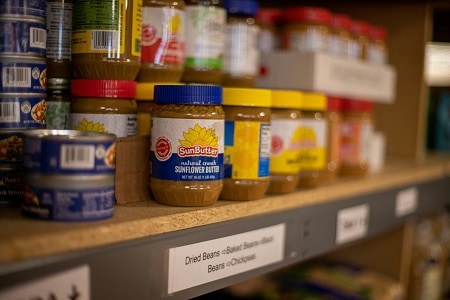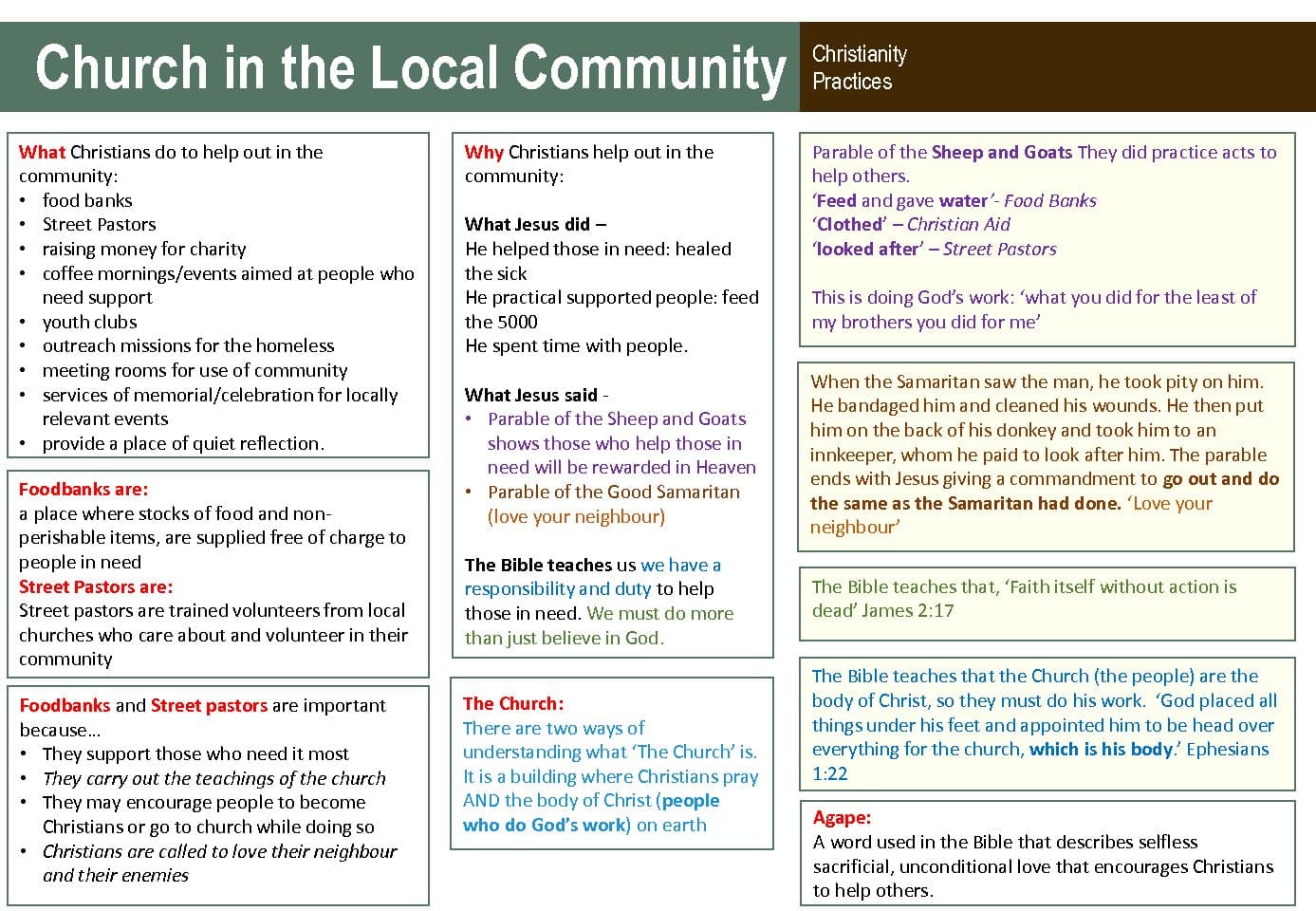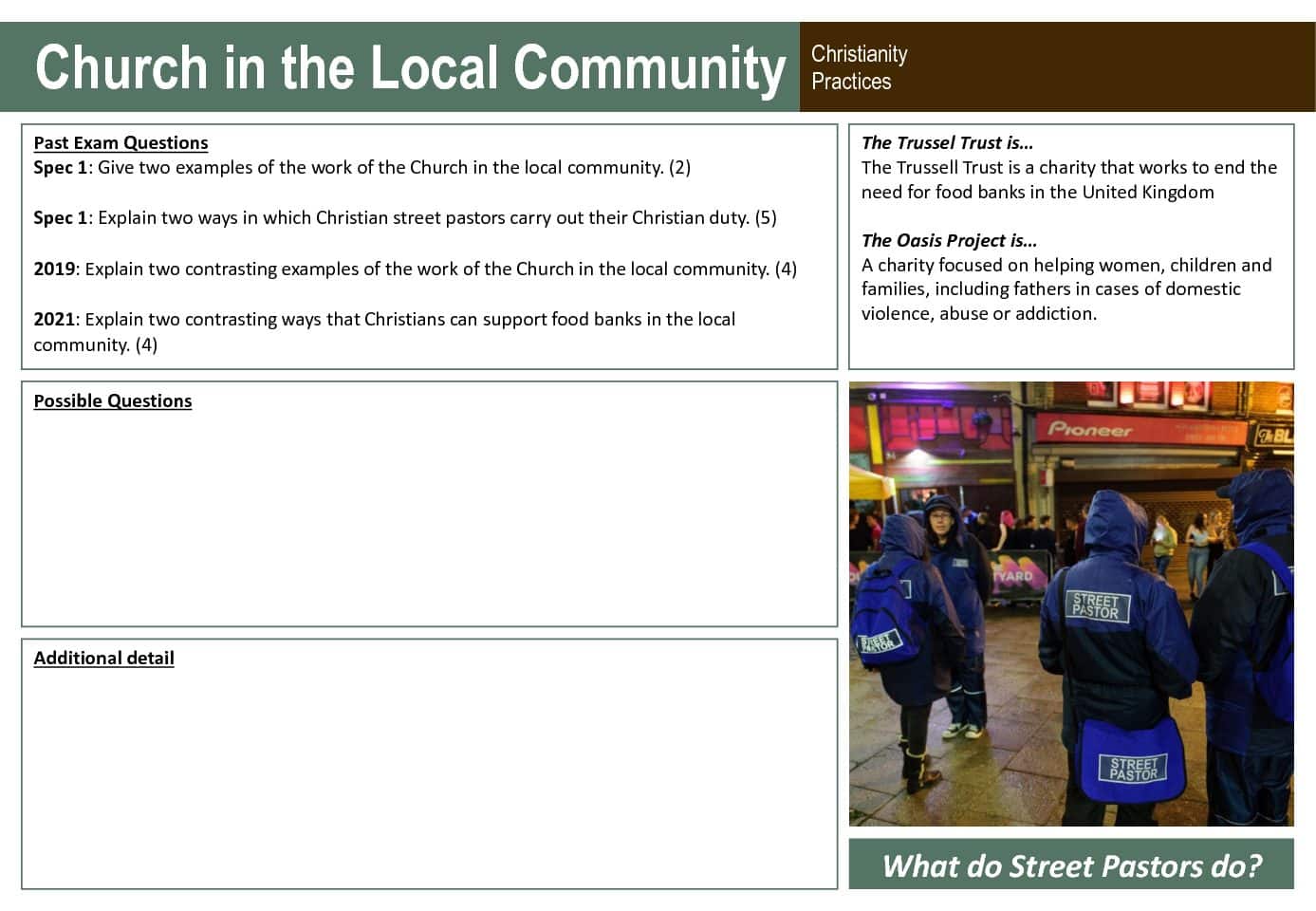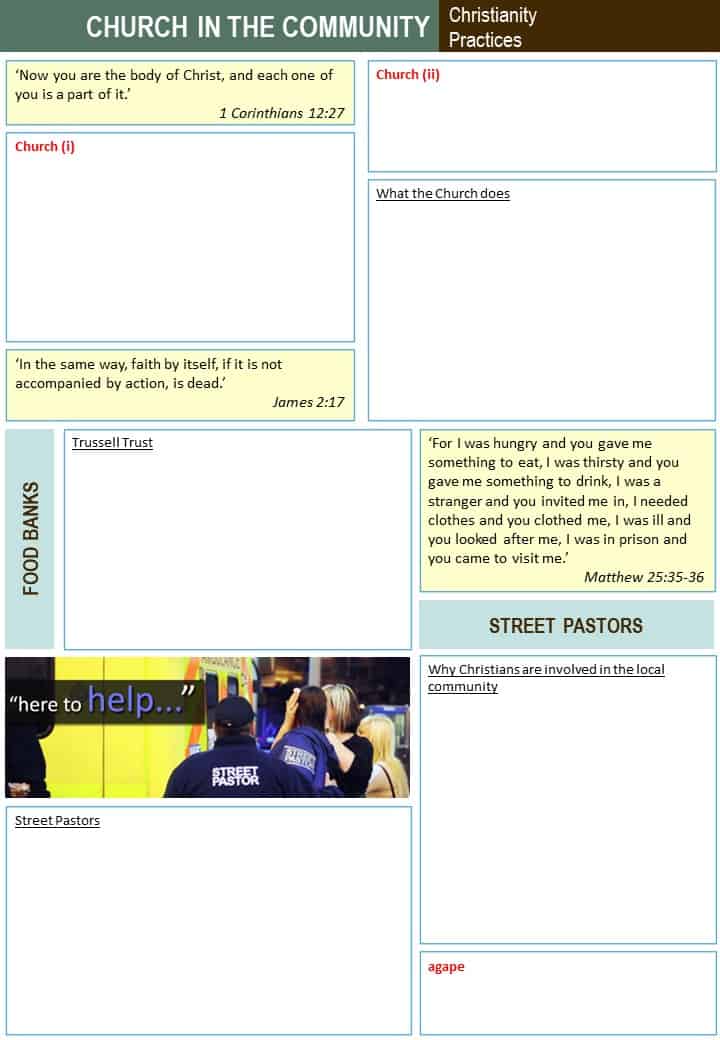Christian practices
The role of the church in the local and worldwide community
The role of the Church in the local community, including:
- food banks
- street pastors
Food banks
Give two examples of the work of the Church in the local community. (2)
Spec 1
- food banks
- raising money for charity
- coffee mornings/events aimed at people who need support
- youth clubs
- outreach missions for the homeless
- meeting rooms for use of community
- services of memorial/celebration for locally relevant events
- provide a place of quiet reflection.
Explain two contrasting examples of the work of the Church in the local community. (4)
2019
• Some Christians will help people with spiritual needs in the community, for example those who feel abandoned by society / others will help with their physical needs, for example those who have insufficient food/money to maintain themselves and their families.
• Some will work with food banks by collecting and distributing food / others will give money or pay a tithe to help buy what is needed.
• Some will bring emergency help, for example to those who are injured in fights at pubs or clubs / others, such as street pastors, will target both the spiritual and physical needs of those who are at risk in the streets.
• The Salvation Army provides hostels for the homeless / others will provide soup and food parcels to those who sleep on the streets.
• The St Vincent de Paul Society helps refugees, released prisoners, the disabled and the mentally ill / some specifically target the needs of immigrants, particularly those with language difficulties.
• Some will pray for the local community as a whole / other groups will use churches as a centre for offering food, companionship and help of different kinds.
• The Church provides a base for the community just for rites of passage, weddings, funerals, christenings / for others the Church provides a family for those who are alone, etc.
Explain two contrasting ways that Christians can support food banks in the local community. (4)
2021
• Some Christians donate money to local charities who organise food banks / so that food stocks can be maintained for those who need them.
• Some will work as volunteers / to sort, parcel up, and distribute food that arrives in food banks / others will check the food labels to see that they are not out of date / or will sort the food into nonperishable categories and those which need to be consumed within a relatively short time frame.
• Some might work with the local police and other authorities / to distribute resources and relieve need.
• Many supermarkets run a food bank scheme / Christians who shop there can support the scheme by donating food they have purchased.
• Some of the food banks provide courses designed to help people eat well and spend less / and some Christians help to deliver such courses.
• The Trussell Trust runs food banks in different areas of the UK / Christians in their local areas can collect, sort and distribute food donated through churches, schools, businesses and individual donors / Christians who work as doctors and health visitors, for example, can identify and help those in need by supplying vouchers for nutritionally balanced food.
• Many churches run food banks / offer premises for them / without vouchers or referral, etc.
Street Pastors
Explain two ways in which Christian street pastors carry out their Christian duty. (5)
Spec 1
- some focus on young people who are in need: they patrol the streets of towns and cities at night, helping and caring for people in practical ways – they are carrying out the command to ‘Love your neighbour’
- some work with councils and local police targeting areas where there may be trouble: they helping people who are intoxicated; they are following Jesus’ example of working with those disrespected by society, and of service to others
- they will get people to talk to them and keep confidence (where it is legal to do so) – they are expressing Christian love for all people – following Jesus’ teaching of ‘Love one another as I have loved you’.
Resources
Videos






